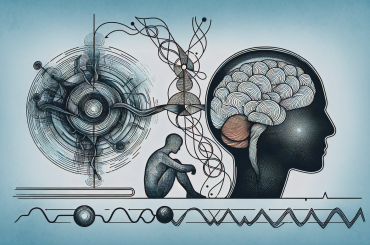For people who struggle with substance use disorders, there are a variety of treatment options, from talk therapy to detoxification and medication-assisted treatment. But what is effective for one person may not work for someone else.
Music therapy can be traced back to the work of Plato and Aristotle. In its current form, it’s typically linked with arriving after World War II, when musicians would visit hospitals to play for veterans. Noting the physical and emotional responses to the music, doctors and nurses encouraged the hiring of certain musicians.
Its modern use, much like art therapy, is to help patients tap into emotions that may be more difficult to express through traditional communication. So, while cognitive behavioral therapy (CBT) and rational emotive behavior therapy (REBT) are used much more often and can be effective in helping certain patients, those who struggle to open up may have more success with music therapy as an add-on service.
How It Works in Substance Use Disorder Treatment
While many of the veterans who were the audience for a rotating trove of performers post-World War II listened to and enjoyed their efforts, there’s much more to music therapy than just opening your ears.
Many music therapists incorporate elements such as playing instruments, lyric analysis, movement, and songwriting into their programming.
Studies have found numerous benefits in these individually. Songwriting and lyric analysis are related to positive emotional change. Drumming has been associated with relaxation and can be helpful for people who have experienced repeated relapses. Movement to music is linked to a decrease in anxiety, depression, anger, and stress related to substance use.
Perhaps most importantly, research shows that music therapy is positively correlated with a willingness to participate in substance use disorder treatment. Without getting a person in the door, none of those more specific benefits would be possible.
The Populations Who Benefit the Most
While we might like to think of certain therapeutic interventions as a cure-all that can have a meaningful impact across populations, the reality is that certain therapies are more effective for various segments.
In the case of music therapy, studies find that it’s particularly helpful for adolescents and women. One researcher found that adolescents in particular tend to use music and drugs for similar reasons — primarily reducing psychological distress — so, music therapy can have profound meaning for that specific population.
There’s also the case of hospitalized youths. For these young people, the use of music therapy provides a safe way for them to internalize a healthy self-image alongside their patient identity.
Music Therapy in Group Settings
Music therapy exists in individual formats between patient and instructor, but like many forms of therapy, it can often be more effective in group settings.
One clinical study followed a seven-week trial of music therapy as an adjunct to group CBT, with the aim of increasing patient engagement in a private hospital program. The results found that the enjoyment and motivation of those who participated was uniformly high, with 83% of participants saying that they would attend more music therapy and 46% endorsing that music therapy “would help them to feel more of a part of the group.”
It makes sense. Particularly with activities like songwriting and improvisation, some of the best ideas come out of a group of creative minds working together.
To be most effective, music therapy needs to complement other therapeutic interventions. But with the right approach, and targeting the right populations, it can have a significant impact on a person’s ability to cope with their symptoms and push toward a healthier life free of addiction.
About Blue Ridge Mountain Recovery Center
Located in Ball Ground, Georgia, less than an hour north of Atlanta, Blue Ridge Mountain Recovery Center provides residential treatment for adults age 18 and older who are struggling with addiction and certain co-occurring mental health disorders. Nestled on 40 acres in the foothills of the Blue Ridge Mountains, our addiction treatment center provides the ideal environment for adults to solely focus on the recovery process. In addition to residential treatment, we also offer a partial hospitalization program and an intensive outpatient program. For more information, visit www.blueridgemountainrecovery.com.







